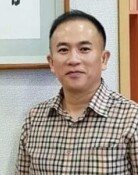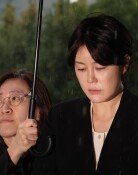New PM Lee Wan-koo asked to fulfill his responsibilities
New PM Lee Wan-koo asked to fulfill his responsibilities
Posted February. 17, 2015 07:37,
The National Assembly passed the confirmation motion of Prime Minister Lee Wan-koo on Monday after twists and turns. Out of the total 281 lawmakers who attended the plenary session, 148 lawmakers voted for Lee, 128 voted against and five votes were regarded as invalid, ending up with an approval rate of 52.7 percent. Considering the number of Saenuri party members is 155, at least seven Saenuri lawmakers did not confirm Lee if assumed that all members of the main opposition New Politics Alliance for Democracy (NPAD) voted against.
When thinking about Lees attempt to avoid military service and speculative real estate deals revealed during the confirmation hearing, it is hard to say the issues of Lee are lighter than those of Ahn Dae-hee and Moon Chang-geuk, President Park Geun-hyes two preceding picks for prime minister, who stepped down from nominations. Nonetheless, Lee was endorsed by the National Assembly, which must be attributed to the fact that he is an incumbent lawmaker and his hometown is the Chungcheong provinces. Under the incumbent lawmakers law, a nominee owning a seat in the Assembly has never failed to pass confirmation hearings for prime minister and cabinet member since 2000 when the confirmation hearing system was introduced.
It was pathetic to see the rampant regionalism in politics, which came to light during the confirmation hearings. NPAD Chairman Moon Jae-in sparked a controversy over regionalism on Jan. 26 by saying, A person from honam region (Jeolla provinces) should have been nominated (as prime minister). Honorary Chairman of Chungcheong hometown alumni said at the confirmation hearing on Feb. 11, This Prime Minister nominee is from chungcheong region, and people from honam region keep raising issues. But no lawmaker has reprimanded such remarks that instigated regionalism. Some Saenuri lawmakers from Chungcheong region held a press conference and provoked regionalism by saying, Opposition party is against the Prime Minister who is from Chungcheong Province. This is also definitely not a good attitude of the ruling party which seeks harmonious integration across the nation. Right before the endorsement in the Assembly, Chungcheong regions opinion about the NAPD has worsened. It seems to have affected result of the confirmation vote.
It remains doubtful whether Prime Minister Lee, whose leadership has been greatly challenged while going through the confirmation hearings and verification process, can give confidence to the public and exercise power of command in the Cabinet. It is not an easy role to lead state affairs including public servant pension reform, transformation of the public offices, and restructuring of the labor market, which the Park administration pursues as the core project in the third year of her term in office. The Park administration, which aimed to bring forth fresh momentum by appointing a new prime minister amidst an all-time low approval rating, is likely to have setbacks in pursuit of the future plans.
In order for new Prime Minister Lee to fulfill his responsibilities and exercise due authorities, such as the right to propose Cabinet Members provided under the Constitution, as a responsible Prime Minister that President Park pledged, President Parks attitude is also important as much as Lees commitment is. President Park must deliver a clear message to put prime minister and the Cabinet at the center of running state affairs when it comes of partial shakeup of the Cabinet and the presidential office, which will be unveiled soon. The main opposition NPAD must stand up for right things in the state affairs, but needs to get out of old-dated practice of "dragging down" and focus on productive competition to earn trust from the public.
Headline News
- N. Korea redefines S. Korea as ‘hostile state’ in revised constitution
- Samsung develops graphic DRAM with industry-leading capacity and speed
- Three questions allegedly leaked via text message during Yonsei Univ. essay test
- China to inject 340 trillion won in loans to support real estate sector
- Dodgers beat Mets to take 2-1 lead in NLCS







